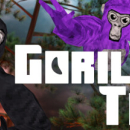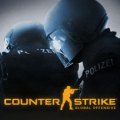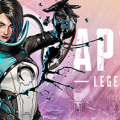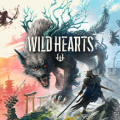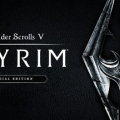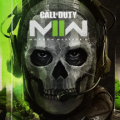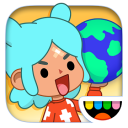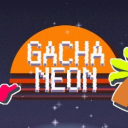Gorilla Tag
There’s a unique electricity to Gorilla Tag, a VR game that flips the conventional notion of movement, communication, and even skill. While at first glance it may seem like nothing more than a whimsical playground for digital primates, Gorilla Tag delivers a fresh and unfiltered multiplayer experience. It’s not just another VR project—it’s a social sandbox that has captured millions across different platforms with its hyper-physical gameplay loop and expressive, unrefined energy. If you’ve found yourself curious to download Gorilla Tag, crave an unblocked experience, or have gone down the rabbit hole of mods and cheats, settle in: let’s explore why Gorilla Tag has become a phenomenon that refuses to be tamed.
The Core of Gorilla Tag: Movement and Freedom
Forget traditional VR locomotion. Gorilla Tag discards all that—no thumbstick movement, no teleporting, not even swinging from branches. Instead, every motion is dictated by one mechanic: moving your arms. Swiveling your head and physically pushing your VR controllers along a virtual forest or abandoned digital map, you will quickly learn that running (or rather, bounding) like a gorilla is an unexpectedly demanding physical workout. This is not a game where you can sit back and relax—your entire upper body gets involved with every leap, climb, and desperate last-minute dodge as you play tag with up to ten other wildly gesticulating players.
Unlike other multiplayer VR titles, Gorilla Tag’s greatest asset is this reliance on freeform movement. Getting started is simple; to play, you only need your VR headset and a willingness to move. But true mastery, the kind that sees you wall-jumping and scaling trees with the agility of a digital great ape, takes real skill. If you want to install skills as you would mods, tough luck—but that’s part of the appeal. The skill ceiling is set only by your determination, physical limits, and how much you want to commit to learning every trick in the book (or perhaps, in the banana).
Social Chaos Meets Emergent Gameplay
The magic Gorilla Tag holds over its community isn’t just about how you move—it’s about who you meet and what happens in those chaotic forests. With proximity-based voice chat and the spontaneous, unscripted nature of each match, Gorilla Tag feels closer to a real playground than any other multiplayer VR experience today. Lobbies flood with laughter, shouts, and makeshift rules as players create their own minigames within the main playground loop; you’ll see inventive takes on hide and seek, parkour races, and custom role-play scenarios alongside classic tag.
Thanks to its free access model, anyone can quickly jump in and play with thousands of concurrent users. Those just discovering the title can download it effortlessly (especially on Oculus Quest 2, where Gorilla Tag became a breakout hit and is now available as a full app). The install process is swift, and since the game is unblocked for standalone headsets, it’s accessible in almost any environment—although perhaps not a calm one. True to the best traditions of open, grassroots multiplayer games, mods and cheats have flourished, leading to a vibrant culture of community-contributed assets, experimental maps, and questionable, chaotic fun.
Why Gorilla Tag Is Unlike Anything Else on the Market
What makes Gorilla Tag shine brightest is its refusal to hold your hand. Newcomers will stumble and fumble. There’s no single-player, no handholding tutorial ferrying you to victory, and no glossy cinematic cutscenes. Gorilla Tag commits purely to emergent, player-driven fun. Want mods? There’s a thriving community. Looking for Gorilla Tag unblocked at work or school? As long as you aren’t tethered to enterprise network restrictions, chances are you can launch the game wherever your Quest or PC goes.
The game’s visuals are deliberately chunky—no hyper-realism, just big-fisted gorilla avatars and simple geometry that makes every leap and fall crystal clear. Even the audio is improvisational, made by players and their proximity, further cementing the game’s unique identity. Whether you’re strategizing a cunning pursuit, spectating parkour duels, or simply hurling yourself from tree to tree for the sheer kinetic thrill of raw movement, Gorilla Tag never fails to amuse.
Accessibility & the Power of Free Play
One strength that can't be overstated is Gorilla Tag's free entry barrier. Unlike so many VR titles requiring hefty purchases, you can simply download and install Gorilla Tag with no upfront cost on leading VR platforms including Oculus Quest (now Meta Quest), PC VR, and even some third-party alternatives on Android. This open-door policy is crucial; by inviting everyone, the lobbies are always bustling. If you want Gorilla Tag unblocked and ready for lunchtime antics or late-night sprints, it’s a few clicks away. The community is always changing—a swirl of new and veteran players, modders, and content creators keeping things fresh.
For the adventurous, mods add nearly limitless possibilities. The base game is endlessly replayable, but even more so when you factor in custom maps, inventive cosmetics, and unique tweaks. Mods are discreetly tolerated in custom lobbies, though not in competitive matchups, so how you engage with these modifications depends entirely on your appetite for risk and novelty. As for cheats, expect the developers and community moderators to clamp down hard on anything that risks spoiling the fun or fairness of the game; try to stay within the spirit rather than looking for unearned advantages.
Performance, Compatibility & System Requirements
Gorilla Tag is astonishingly well-optimized. Even budget machines can run it thanks to the low-fi art style. That said, VR hardware requirements still apply: you’ll need a capable Quest, PC with at least a GTX 970 GPU, or compatible Android device with sideloaded .apk support. The install process is straightforward, with official downloads available from the Meta Quest Store, Steam, or trusted third-party sites for alternative platforms. Crossplay isn’t universal, but there’s a healthy userbase on each supported device. PC VR players can interact with Quest users seamlessly, ensuring no siloed ecosystems dilute the experience.
Community-Driven Evolution
Part of the Gorilla Tag magic lies in its do-it-yourself spirit. Mods are everywhere, and beyond platform-exclusive cosmetics, players have even created new modes and arenas. Essential to the Gorilla Tag fabric is how these contributions shape the play experience—sometimes with developer blessings, often at the edge of what’s officially supported. The most authentic way to play is still vanilla, but if you want creative chaos, the path is open.
One crucial detail: there’s a strict division between vanilla game lobbies and modded ones. This ensures stability for those who crave pure, competitive matches. But for those seeking surprise, more experimental (and occasionally hilarious) lobbies are a click away once you’ve installed the right mods. The Gorilla Tag Discord and Reddit hubs are the best places to find reliable downloads, updates, and advice.
Should You Install Gorilla Tag? The Verdict
Gorilla Tag isn’t just a VR game; it’s a test of your willingness to let go of convention and embrace chaos. The game’s movement system, freeform play, and constant community innovation create an experience that feels genuinely participatory. If you crave sleek, scripted content or a progression system with rewards, you might initially bounce off Gorilla Tag’s carefree simplicity. But if you want a multiplayer playground where skill, hilarity, and raw movement reign supreme, Gorilla Tag is an experience you shouldn't miss. Download it, play unblocked if you can, and discover what hundreds of thousands already know: there’s nothing else quite like it in VR today.
Pros:
- Energetic, intuitive movement system using real-life arm motions
- Free to download and play on multiple major VR platforms
- Wide accessibility due to low hardware requirements
- Proximity-based voice chat creates real social interaction
- Endless replay value through emergent minigames and community-improvised rules
- Custom mods and experimental maps support creative freedom
- Fast install process and frequent updates from developers
Cons:
- Lack of single-player content or structured progression
- Physical demands may exclude some users or cause fatigue
- Occasional toxicity or inappropriate behavior due to open voice chat
- Officially unsupported on Mac, PlayStation, or Xbox
How to Download and Play Gorilla Tag on Different Platforms
Gorilla Tag is available as a free-to-play VR game, primarily designed for standalone headsets and PC-based VR systems. Getting started requires only the appropriate hardware and a download from official game stores or trusted community resources.
- Windows PC: Available on Steam. Simply search for Gorilla Tag and install directly or via Steam VR.
- Mac: Not officially supported. Running it requires additional emulation or Windows dual boot; performance and compatibility aren't guaranteed.
- Chromebook: Unsupported, but some users attempt cloud gaming platforms such as Shadow or NVIDIA GeForce Now.
- Oculus Quest/Meta Quest: Fully supported. Download from the Meta Quest Store for a seamless install and play experience.
- PlayStation/Xbox: Not available on any PlayStation or Xbox consoles.
- Nintendo Switch: Not supported.
- Android: Experimental APKs exist but are community-made and may lack full features. No Google Play support.
- iOS: Not available.
To install, download Gorilla Tag from the confirmed storefront for your device—typically Steam for PC VR users or the Meta Quest Store for Quest owners. For mods or custom content, always source from official Discord or Reddit links to avoid corrupted installs or malware. If on unsupported hardware, consider cloud platforms or emulation, but expect possible performance issues.
System requirements for PC are modest: a GTX 970 graphics card, Intel i5 CPU, 8 GB RAM, and any compatible SteamVR headset. For VR-capable Android setups, a device supporting OpenXR and sideloading is required, but performance may vary. Play is unblocked on headsets in most settings; however, school or workfirewalls could restrict online connectivity, and users should always respect network policies.
Use of cheats or unauthorized mods is not permitted in public matches and may lead to bans, but creative mods thrive in custom lobbies. Stick to vanilla play for competitive matches and explore mods in experimental sessions only. Unblocked access is generally possible as long as the device has internet access and isn’t restricted by administrative rules.
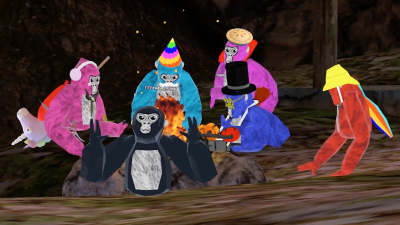
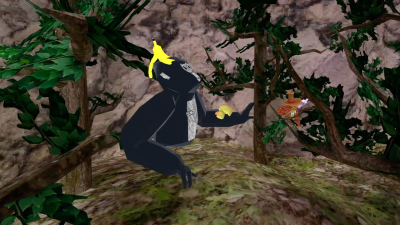
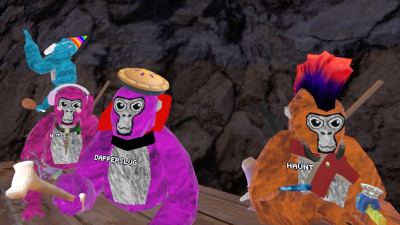
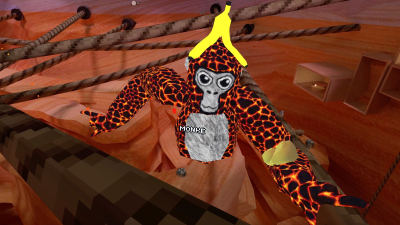
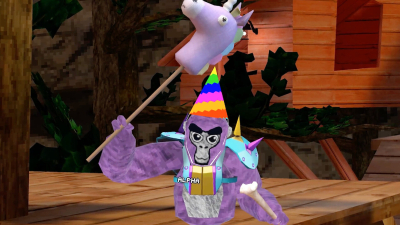
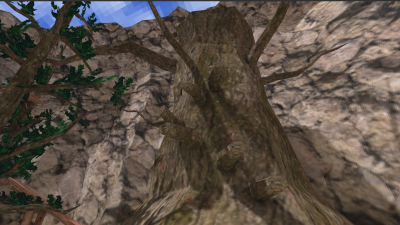
To download the app, you will get links to the Official Website and/or official digital markets.

